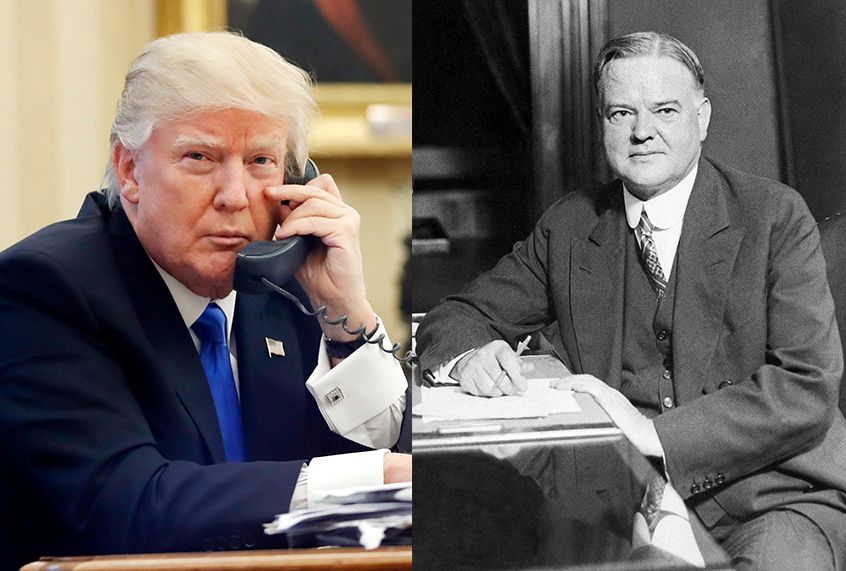America has had two presidents who, without question, deserve to have been labeled as tycoons prior to their presidencies — Herbert Hoover and Donald Trump.
For both men, their past successes in business comprised core parts of their personal image. Each one embodied a notion that Americans have romanticized for generations: the idea of the successful businessman who pulled himself up by his bootstraps and changed the world for the better.
It is only natural, indeed American, that such men should eventually lead the rest of the nation. However, there are several crucial differences between Hoover and Trump.
“They’re very different personalities,” Kenneth Whyte, author of the biography “Hoover: An Extraordinary Life in Extraordinary Times,” explained to me on “Salon Talks.”
“Hoover had a great regard for the office of the presidency, never embarrassed the presidency, had no scandal in his term,” Whyte continued, “And, you know, took his public service very, very much to heart.”
The differences go beyond that. Unlike Trump, Hoover was genuinely self-made. Orphaned at the age of nine and remembered by those who knew him as a child as poverty-stricken, Hoover quite literally started out with nothing, whereas Trump was born into wealth. Every cent that Hoover owned, he earned entirely through his own effort, which Trump can never honestly claim.
Also unlike Trump, Hoover had a strong belief in public service. It was his unwavering conviction that the wealthy had a moral responsibility to give back to society, to use their riches for a common good that was greater than themselves.
Hoover also had a tremendous respect for science. His policies may not have always been the correct ones, but he firmly believed that rational inquiry was the best way to ensure human progress.
On the other hand, there are some similarities to Trump. According to Whyte, Hoover liked the spotlight too. He attempted to take politics out of the problem, go around Congress and bring experts in to weigh in on pressing decisions.
When comparing this similarity to Trump, though, Whyte did make a distinction about Trump: “Instead of expert commissions and conferences, his solution is all of the tweets, all of the rallies, all of executive orders. They’re acts of showmanship that allow him to bypass Congress.”
Before one assumes that this comparison is meant solely to disparage Trump, it must be noted that it really says more about the deterioration of American culture.
Both Hoover and Trump were archetypes, embodying an ideal held by their fellow countrymen. The fact that Hoover’s archetype was so clearly superior to Trump’s, and that Hoover the man was likewise Trump’s better in virtually every meaningful way, says far more about America than it does about the two men themselves.
Watch our full “Salon Talks” conversation on Facebook.
Tune into Salon’s live shows, “Salon Talks” and “Salon Stage,” daily at noon ET / 9 a.m. PT and 4 p.m. ET / 1 p.m. PT, streaming live on Salon and on Facebook.


